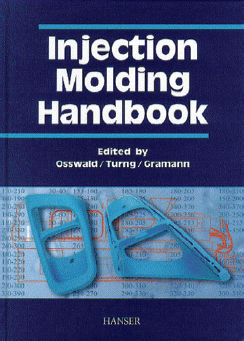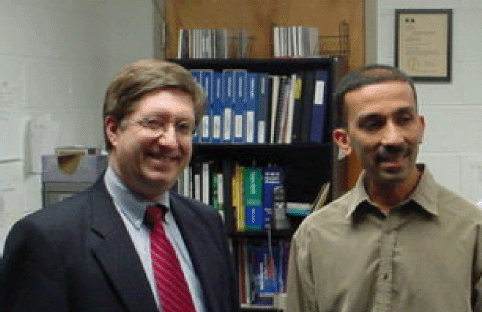The
new instrument is configured for high speed testing to strain rates
in excess of 25/s, permitting the development of consistent rate-dependent
stress-strain data into the impact regime. Outfitted with the latest
Dynacell load cell technology which incorporates an in-built accelerometer,
the instrument automatically compensates for inertial effects, dramatically
improving measurement accuracy. This eliminates a major source of
error associated with high-speed measurements.
The instrument is also capable of performing cyclic loading tests
in multiple modes such as tension, compression and flexure. This
capability will be exploited by DatapointLabs to develop new techniques
to describe the load deformation characteristics of materials subject
to cyclic loading. Fatigue measurements will also be performed.
The higher strength load frame extends the operating range of the
laboratory to now include the testing of certain kinds of metals
including aluminum and sheet metal. These tests are of importance
to engineers working on crash simulations
where such materials are used in automotive bodies.
“The new capabilities will greatly enhance the ability of
the laboratory to develop rate-dependent models for use in impact
and crash simulations using ABAQUS, LS-DYNA, MSC.DYTRAN and PAMCRASH,”
says Hubert Lobo, President of DatapointLabs. “Because of
the participation of the CAE manufacturers in DatapointLabs’
TestPaks
® Alliance program, we have an in-depth understanding
of the material modeling requirements of these simulation codes.
We will now be better able to support the modeling of plastics,
rubber, foam, cardboard and other materials in addition to sheet
metal and aluminum.
Goettfert Rheotens Upgraded
Melt tensile strength measurements are of vital importance to plastics
processors and material suppliers. The information is relevant in
predicting the ability of molten plastic to maintain its form during
extrusion, blow molding, film blowing,
thermoforming and fiber spinning operations.
The Rheotens test provides a reliable comparative measure of the
relative strength of a polymer melt by stretching a molten strand
at a constant rate of acceleration, in a manner similar to a tensile
test. With newly acquired technology, the Rheotens test now allows
clients to receive the actual curve data from each experiment. Additional
calculations are also performed, permitting the reporting of results
such as stress as a function of draw ratio.
Wagner’s work [1] has attempted to extend Rheotens data toward
the development of extensional viscosity vs extension rate measurements.
His technique presents an attractive means to generate data important
for simulation of extrusion, film blowing and fiber spinning operations.
However, it must be noted that significant experimental difficulties
must still be overcome before such data has value as an absolute
measure of extensional viscosity. Chief of these is the fact that
the temperature of the strand is an unknown. During the experiment,
the strand leaves the die at the melt temperature and is drawn down
toward the drawing wheels which are located about 120 mm away. The
strand cools in contact with ambient air along the way. Additionally,
the axial temperature profile changes with the progression of the
experiment.
The use of high resolution infrared pyrometry presents a means to
remove this variable. Alternatively, some experimental improvements
seek to maintain the strand in a constant temperature environment.
Simulation-based approaches provide an alternate means of addressing
the problem.
Reference
1. M.H. Wagner, V. Schulze, A. Goettfert,
Polym. Eng. Sci., 36, pp 925 (1996)
DatapointLabs Approves Matereality®
DDS
DatapointLabs has transitioned to using Matereality’s secure
webbased Data Delivery Service (DDS) to send test results to its
clients. Starting March 2004, data generated at the laboratory will
be converted to True Digital format, ready to be delivered electronically
into clients’ Matereality
® accounts. Data is typically available
one business day after the completion of testing. There is no data
delivery fee but clients must have a Matereality
® account. By requesting
data in electronic format only, clients can save on shipping fees
and take advantage of powerful nextgeneration benefits (see box).
Customers can still choose to have hard copy reports shipped to
them by overnight courier at normal shipping charges. Due to increasing
concerns about viruses in e-mail attachments, DatapointLabs is discouraging
the use of e-mails to deliver PDFs and data files. These will henceforth
be provided only upon specific client request.
Many DatapointLabs clients have already signed on. Says one regular
DatapointLabs client from a major resin supplier company: “It’s
pretty cool. The data is separated and presented clearly. I like
how you don’t have to go through fifty levels of confusion
to find what you’re looking for.”
DatapointLabs offers Matereality
® accounts to its clients at a discounted
price of $300/year ($25/month). In addition to receiving data through
DDS, users get full access to the Matereality
® material data management
(MDM) system. Clients who spend more than $5,000/year are eligible
for a free account. To set up a Matereality
® account, please contact
us at rader@datapointlabs.com or call toll-free at 1-888-DATA-4-CAE.
Injection Molding Handbook
 ISBN: 1-56990-318-2
ISBN: 1-56990-318-2
Publisher: Hanser Gardner
6915 Valley Ave., Cincinnati, OH
45244-3029
Phone: 513-527-8977
This book, edited by the Wisconsinbased team of Osswald, Turng and
Gramman, represents a compilation of work by several wellknown authors
and brings together a body of knowledge that will be appreciated
by injection molding professionals and students of plastics processing.
The book does well to cover all the important aspects of this complex
materials processing technology and goes into as much detail as
needed to provide the reader with a clear understanding of the underlying
science without resorting to
complicated mathematical analysis.
Osswald’s coverage of injection molding materials and processing
pays particular attention to the relationship between molecular
weight and resulting material behavior. Of particular interest is
the section on anisotropy development during processing, which gives
the reader critical insight into residual stress development and
warpage.
Chris Rauwendaal brings his enormous experience in screw behavior
to help the reader understand this important but often neglected
aspect of the injection molding process. Details include mechanisms
of mixing in the screw and nozzle design.
Bob Farrell’s treatment of the molding machine is complete,
with extensive treatment of clamp design including design calculations
and a special discussion on tie-rod design.
John Beaumont’s chapter on mold design and part design provides
guidelines and insight to aid the practitioner in this art.
This sets the stage for Turng’s examination of derivative
molding processes such as gas-assisted injection, microcellular
injection molding, multi-material molding and powder injection molding
processes—less well understood, complex processes that are
nonetheless important because of their extensive use in modern molding
operations. The book also provides practical guidelines for trouble-shooting
processing and material problems.
Hubert Lobo is President of Datapoint-
Labs, and a former CIMP member. Lih-Sheng (Tom) Turng was a student
of Prof. K.K. Wang and also a member of CIMP. He is now an Associate
Professor at the University of Wisconsin Madison.
Cornell University President Tours DatapointLabs
 Lehman (left) and Lobo (right) in one
of DatapointLabs’ testing areas.
Lehman (left) and Lobo (right) in one
of DatapointLabs’ testing areas.
On December 12, 2003, Jeffrey Lehman, the newly appointed president
of Cornell University toured DatapointLabs’ administrative
and testing facilities, as part of an effort to become better acquainted
with Cornell-affiliated businesses. Hubert Lobo, President of DatapointLabs
and a Cornell alum, showed Lehman various testing equipment, explained
the kinds of tests offered by DatapointLabs and introduced him to
the DatapointLabs team.
New Arrivals
This past fall DatapointLabs added three new members to its team.
Jerry Lindsley was hired as a lab technician. He brings almost twenty
years of experience as a service technician in the airline industry
and the military. In his spare time Jerry enjoys hunting and fishing.
Will Liguori was hired as a lab technician and quality assurance
specialist. Will brings over fifteen years of experience in quality
management, primarily in the aerospace industry, and moonlights
as a rock guitarist.
Mark Rader is the company’s new administrative assistant.
He has been assisting in the editing and delivery of test reports
and the production of company publications. In his spare time Mark
writes fiction and journalism.
Welcome!
CIMP Founder Turns 80
Cornell University Professor Emeritus of Mechanical and Aerospace
Engineering, K.K. Wang, widely regarded as one of the fathers of
modern injection molding simulation turned 80 in October of 2003.
At a surprise birthday party held for him in Ithaca, New York, more
than 50 of his former students, staff and collaborators gathered
to celebrate his contributions to the field. Attendees came from
as far away as Japan, Korea, Taiwan and China. The research and
software code developed by the Cornell Injection Molding Program
(CIMP) forms the basis for most of the injection molding CAE programs
in use today. Former CIMP members now continue his legacy in universities,
institutes and companies all over the world.
CIMP Proceedings Available On-Line
Plastemart.com is pleased to announce its exclusive alliance with
Cornell Injection Molding Program (CIMP) for worldwide distribution
of all its technical papers. These are now available at http://www.
plastemart.com/cimp/. The web-site provides historical details about
CIMP and its activities. A directory of former CIMP members is maintained
as well as links to websites relevant to injection molding and CAE.
It is now possible to purchase specific documents and technical
reports created by CIMP during its 25 year history.
Lalit Shah, former CIMP member and student of K.K. Wang is the founder
of Plastemart, an India-based on-line plastics materials and equipment
trading company.

